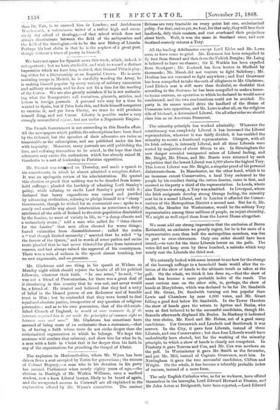The minority principle has worked admirably. Wherever the constituency was
completely Liberal it has increased the Liberal representation, wherever it was fairly divided, it has enabled the minority to secure a fractional representation. Glasgow, with all its Irish colony, is intensely Liberal, and all three Liberals were seated by majorities of about fifteen to six. In Birmingham the new danger revealed unexpected mines of Liberal feeling, and Mr. Bright, Mr. Dixon, and Mr. Muntz were returned by such majorities that the lowest Liberal was 6,000 above the highest Tory. This lowest Liberal was Mr. Bright, a singular proof of his personal disinterestedness. In Manchester, on the other hand, which is to an immense extent Conservative, a local Tory endeared to the people by his conduct during the cotton famine, came in first, and secured to his party a third of the representation. In Leeds, where also Toryism is strong, a Tory was admitted. In Liverpool, where the Irish emigrants develop strong Orange feeling, the minority seat let in a sound Liberal, and in London it afforded the Conser- vatives of the Metropolitan District a second seat. But for it, Mr. Smith, the Member for Westminster, would be the solitary Tory representative among three millions of people, an unjust absurdity. We might as well expel them from the Lower House altogether.






































 Previous page
Previous page